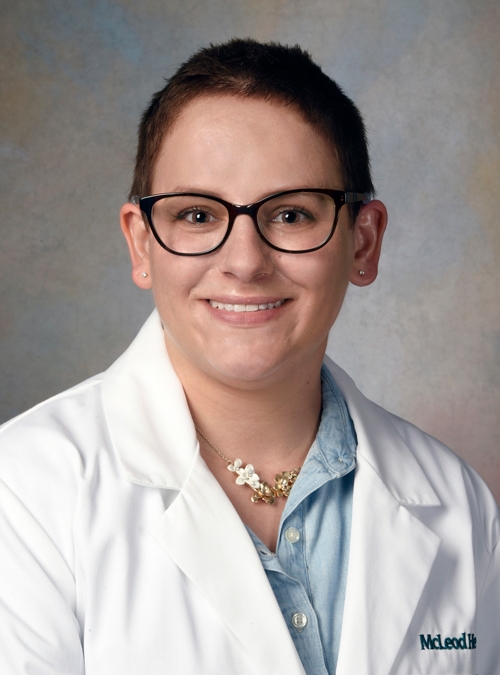McLeod Physician Explains the
Benefits of Hospice Care

A quiet healthcare revolution has been transforming the way people die in America since the 1970s. Known as Hospice, this level of care brings peace, dignity, and comfort to millions of patients and families. McLeod Hospice has been a part of this health care revolution for nearly 35 years.
Today, there are roughly 73 million baby boomers (those born between the years 1946 and 1964) at or near retirement. While Americans are living longer due to medical advances, these breakthroughs are also contributing to the increase in years with which seniors are living with chronic or terminal conditions. This further justifies why more people need to consider their future plans and educate themselves about end-of-life issues and hospice care.
The mission of hospice is to provide services that not only relieve physical symptoms such as pain, shortness of breath, nausea, vomiting, anxiety, restlessness, etc, but also the emotional and spiritual issues of the patient and their family that often accompanies a terminal illness. The ultimate goal is to help patients live with their illness while maintaining the highest quality of life for as long as possible.
Hospice care is appropriate for individuals who have been diagnosed with a life-limiting illness and are considered to be in the advancing stages of their condition. Some of these diseases include: Alzheimer’s disease, stroke, dementia, cancer, Lou Gehrig’s disease, congestive heart failure, COPD and Parkinson’s disease.
When hospice care was established in the U.S. in the 1970s, cancer patients made up the largest percentage of hospice admissions. Today, cancer diagnoses account for less than half of all hospice admissions. The most common non-cancer primary diagnoses reported among Hospice Medicare beneficiaries as of 2018 were heart and circulatory disorders (28 percent) and neurological conditions (23 percent), according to the Medicare Payment Advisory Commission’s (MedPAC) Report to the Congress: Medicare Payment Policy – March 2020.
The purpose of hospice has always been to allow patients with terminal illnesses to spend their final months at home, in familiar surroundings, with their family and friends nearby. Understanding that this is not always possible, McLeod Hospice also cares for patients who are hospitalized or living in long-term care facilities. In addition, McLeod provides inpatient care for acutely ill patients at the McLeod Hospice House in Florence as well as McLeod Health Dillon, McLeod Health Loris Seacoast, McLeod Health Cheraw and McLeod Health Clarendon.
Often, many families do not realize that hospice care is covered under Medicare, Medicaid, private insurance plans, HMOs, and other managed care organizations. As a not-for-profit Hospice, McLeod ensures that all patients receive hospice care regardless of their ability to pay.
It is not unusual for a discussion to take place about a loved one needing hospice care when the family is overwhelmed with emotions. Having this conversation at this stage in the journey is difficult and uncomfortable for many of us. However, it is important for families to begin talking about end-of-life care early and to conduct research on hospice programs in their community.
McLeod Hospice is dedicated to helping patients live the remainder of their lives as fully as possible and is a source of information for end-of-life care. The Hospice team consists of four full-time physicians, seven part-time physicians, nurses, social workers, chaplains, volunteers and bereavement counselors who work together to care for the patient’s symptoms, while easing the emotional and spiritual suffering of their families and loved ones.
For more information or answers to your questions regarding care for you or a loved one, please call (843) 777-2564.
Dr. Robin M. Fuchs cares for patients of McLeod Hospice and Palliative Care. An Associate Medical Director, Dr. Fuchs came to McLeod following the completion of her fellowship training at Firelands Regional Medical Center in Sandusky, Ohio. She completed medical school at Ohio University Heritage College of Osteopathic Medicine in Athens, Ohio, and her residency in Family Medicine at Lakeland Health System in Saint Joseph, Michigan. Dr. Fuchs and her husband, Dr. Ryan Fuchs, who is also a McLeod Hospice Associate Medical Director, joined McLeod in July 2020.
-
McLEOD REGIONAL MEDICAL CENTER FLORENCE
843-777-2000 -
McLEOD DARLINGTON
843-777-1100 -
McLEOD DILLON
843-774-4111 -
McLEOD LORIS
843-716-7000 -
McLEOD SEACOAST
843-390-8100 -
McLEOD CHERAW
843-537-7881 -
McLEOD CLARENDON
803-433-3000



-
McLEOD REGIONAL MEDICAL CENTER FLORENCE
843-777-2000 -
McLEOD DARLINGTON
843-777-1100 -
McLEOD DILLON
843-774-4111 -
McLEOD LORIS
843-716-7000 -
McLEOD SEACOAST
843-390-8100 -
McLEOD CHERAW
843-537-7881 -
McLEOD CLARENDON
803-433-3000
 Find a Doctor
Find a Doctor  Locations
Locations  Services
Services